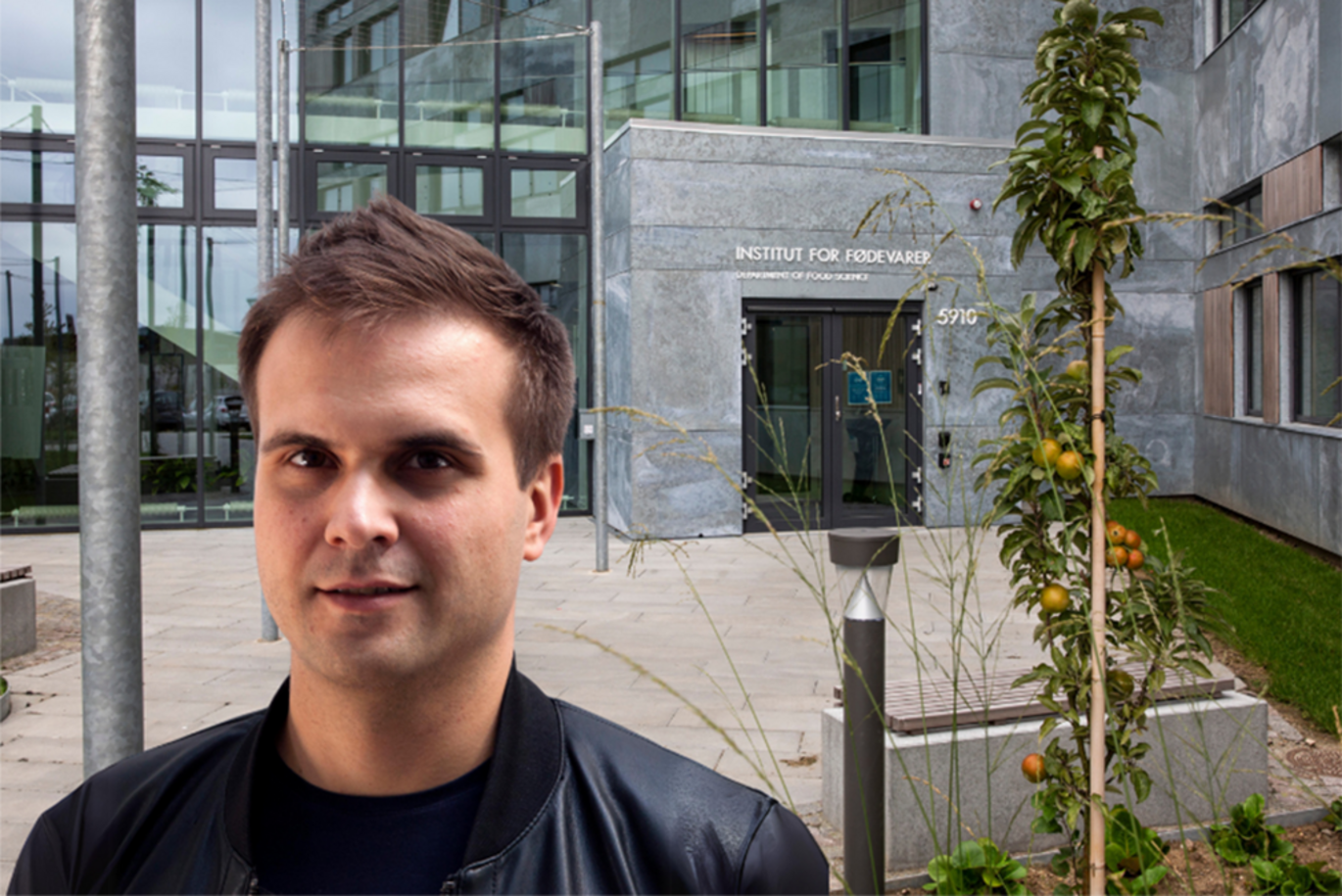“Fruit and Vegetable Expert” Alexandru Luca appointed as a Tenure Track in Postharvest Quality and Technology of Horticultural Products at AU FOOD
Alexandru Luca was accepted as a Tenure Track Assistant Professor in April 2022. This Tenure Track is a six-year process, with a specific focus on postharvest quality and technology of horticultural products. Alex has leading expertise in chemical, physiological, and technological changes in plant food quality after harvest to bring high-quality, fresh plant food products to the market with a minimum of food waste.

Alexandru Luca’s academic career started with a bachelor’s degree in food engineering at Middle Eastern Technical University in Turkey which he completed in 2010.
The summer after finishing his bachelor’s degree, he did a few internships at engineering companies, but quickly realised that he wanted to pursue an academic career.
He returned to university and completed a master’s degree in food engineering, and it was the search for somewhere to do a Ph.D-programme that led him to Aarhus University for the first time.
Here he got a Ph.D.-position in the postharvest field, working with Merete Edelenbos as his supervisor.
“The project sounded interesting, and Aarhus University has a highly recognised status globally, so that's why I chose to come here. Thanks to my colleagues and Merete Edelenbos, who was not only my supervisor but my mentor as well, I started to find out how I wanted to proceed in my career”, he says.
He defended his Ph.D.-project in 2015, titled “Volatile organic compounds as markers for postharvest fruit and vegetable quality changes”, and spent the next few years working in the postharvest field, both in Aarhus, Germany and as an industrially funded postdoc for Maersk Container Industries.
The fight against food waste
Through his academic career, Alexandru Luca has become a specialist in the postharvest field, focusing on improving postharvest keeping quality of fruits and vegetables.
“In our research, we need to be able to look for symptoms, diagnose, predict and make a treatment plan to optimize conditions. Unfortunately, we cannot reverse or recover quality that has already been lost, but we aim to slow down any processes and find out how to prevent or minimise any problems happening in the future”, he says.
According to Alexandru Luca, the numbers don’t look great.
“When food is wasted, it adds to the negative climate impact of the rest of the produce because it wasn't consumed, because all the resources were still used to produce it. In terms of fruits and vegetables around 45-50% goes to waste - on average, almost every second vegetable that is produced is not consumed.”
The research done in the postharvest field is centered around trying to optimize quality of the produce when it reaches the consumer and to reduce food waste, he explains.
“The primary goal of my research is to study existing supply chains and find new solutions for them to preserve the quality and to minimize the food waste. That's the driving force and that's directly related to supporting consumers in the green transition and reducing environmental impact”, he explains.
Multdisciplinary department
In April 2022 Alexandru Luca was made Tenure Track Assistant Professor at Aarhus University. He is pleased to be able to continue his work at the Department of Food Science.
“I like being here - there are opportunities for my career, and to conduct the research that I'm interested in”, he says.
He enjoys the combination of doing both fundamental and mechanistic research, and applied research that will deliver impact, and trying to find the balance between the two.
“One of the biggest driving forces for me is to contribute to the scientific community, to collect new knowledge and further develop technologies”, he says.
He explains that one of the biggest strengths of the department is that it is multidisciplinary approach and strong collaborative approach.
“There are so many talented colleagues in so many different food-related fields, so if I want to dive into something that might be unfamiliar to me, there is always someone to ask”, he says.
The Department of Food Science is very pleased to have him on the team.
